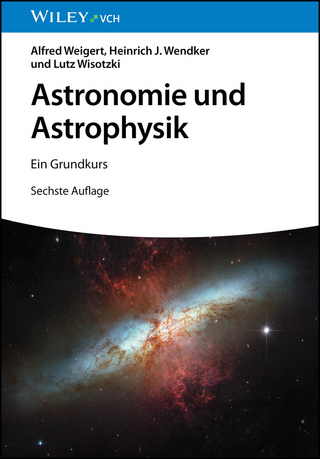
Fire and Ice
Bloomsbury Sigma (Verlag)
978-1-4729-6039-9 (ISBN)
- Titel wird leider nicht erscheinen
- Artikel merken
We tend to think of Earth volcanoes as erupting hot, molten lava and emitting huge, billowing clouds of incandescent ash. However, it isn't necessarily the same across the rest of the Solar System. For a start, some volcanoes aren't even particularly hot. Those on Pluto, for example, erupt an icy slush of substances such as water, methane, nitrogen or ammonia, that freeze to form ice mountains as hard as rock. While others, like the volcanoes on one of Jupiter's moons, Io, erupt the hottest lavas in the Solar System onto a surface covered in a frosty coating of sulphur.
Whether they are formed of fire or ice, volcanoes are of huge importance for scientists trying to picture the inner workings of a planet or moon. Volcanoes dredge up materials from the otherwise inaccessible depths and helpfully deliver them to the surface. The way in which they erupt, and the products they generate, can even help scientists ponder bigger questions on the possibility of life elsewhere in the Solar System.
Fire and Ice is an exploration of the Solar System's volcanoes, from the highest peaks of Mars to the intensely inhospitable surface of Venus and the red-hot summits of Io, to the coldest, seemingly dormant icy carapaces of Enceladus and Europa, an unusual look at how these cosmic features are made, and whether such active planetary systems might host life.
Natalie Starkey is a geologist and cosmologist. Over the course of her doctorate at Edinburgh University, studying the geochemistry of Arctic volcanoes, Natalie travelled to the volcanic fields of Iceland, the ancient volcanoes of northern Scotland and spent three months as a volcanologist on the island of Montserrat in the Caribbean. Later, her postdoctoral research expanded to include the analysis of rock samples from space, which led to her first popular science book, Catching Stardust (Bloomsbury Sigma, 2018). Natalie received a British Science Association Media Fellowship in 2013 and regularly appears on television and radio internationally, as well as being a science host with Neil deGrasse Tyson's popular StarTalk Radio. @starkeystardust / nataliestarkey.com
| Erscheint lt. Verlag | 30.9.2021 |
|---|---|
| Verlagsort | London |
| Sprache | englisch |
| Maße | 135 x 216 mm |
| Themenwelt | Sachbuch/Ratgeber ► Natur / Technik ► Weltraum / Astronomie |
| Naturwissenschaften ► Geowissenschaften ► Geologie | |
| ISBN-10 | 1-4729-6039-4 / 1472960394 |
| ISBN-13 | 978-1-4729-6039-9 / 9781472960399 |
| Zustand | Neuware |
| Haben Sie eine Frage zum Produkt? |
aus dem Bereich


